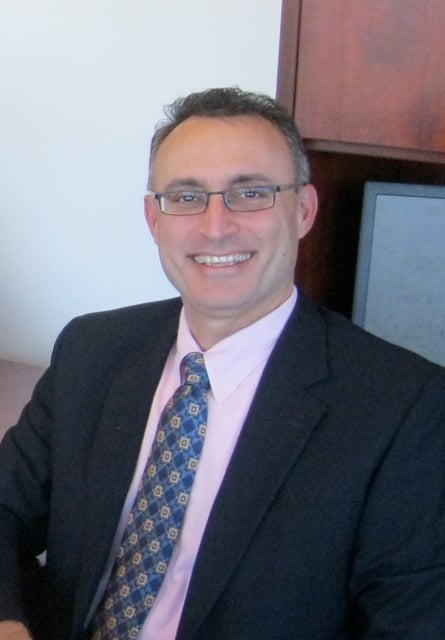Medicine from the heart . . . Frank Domino
On Thursdays, the Daily Voice showcases selected Thursday Morning Memos, reflective essays about clinical experiences written by faculty, alumni, residents and students of the Department of Family Medicine & Community Health and, occasionally, contributors from other departments. Thursday Morning Memos is UMass Medical School’s homegrown version of narrative medicine, in which the authors process their experiences through writing. To learn more, visit: http://www.umassmed.edu/news/articles/2011/personal_stories.aspx.
|
Attending physician Frank Domino, MD, professor of family medicine & community health, had one of those days that didn’t feel so great. Then his patients helped him realize that, by just being there, he was offering them something they could not get anywhere else.—Hugh Silk, MD |
 |
Being There
A four-month-old on your schedule for a well-child visit is a gift. You get to say all sorts of encouraging things, speak your mind and offer advice to a parent. You give, and they happily take. And what great little toes . . .
Lisa came in today. She is a 52-year-old mother of three who has a leiomyosarcoma, now with metastases to the lung and pelvis. “I will leave my children in less than a year.” We spent an hour together, her crying, me trying not to.
“I just told them [her kids] it was cancer of the uterus, so they wouldn’t Google it and know . . .” Know the prognosis: Lisa’s tumor has a five-year survival rate under 30 percent.
“I know God wouldn’t have given me something I couldn’t handle.” Do I say what I am thinking, or do I let her keep her faith? I choose the latter.
“I want to stop the chemo; I don’t want to die feeling this sick.” I urge her to not give up. “You have a chance.” I ask her why she might want to continue to try, hoping to build insight. In retrospect, I discover I was hoping her own guilt would spur her on. I’m not proud of this.
“Not going back to the psychologist; it was just a cry-fest.”
“Then let me help you find someone else,” I try.
“No.”
At the end of an hour, I feel like I am useless. I didn’t say what I thought.
Yet, Lisa can’t stop thanking me, telling me by being there, listening, it is the best she has felt in months. Enter transference. I feel terrible. Then I feel terrible about feeling terrible. That four-month-old’s visit on my schedule is soon.
Next, I helped a 73-year-old with early dementia complete her Advance Directive. “How do you feel about dialysis if your kidneys stop working?”
“What do you think I should do?”
Do I say “no!”? I don’t speak my mind, and encourage her to decide.
Next, I took a few staples out of the head of a very at-risk teen who suffered a laceration from a beer bottle fight. How did this happen? “I dunno . . .” I withhold my desire to give the parent lecture. I can’t gather the resources in my brain to open a discussion; I am almost an hour behind . . .
The staff informs me, “The baby just canceled; they will reschedule for next week.” I really wanted that four-month-old’s visit; maybe I even needed it.
Health care is hard. We juggle lives, emotions, turmoil and science. And the science is the easy part. Yet, when I was feeling defeated and useless, Lisa told me by just being there, she was better.
Woody Allen said 80 percent of success is just showing up. The other 20 percent is listening, and knowing when not to speak your mind. Patient interaction is not a chat or discussion. It is a form of treatment.